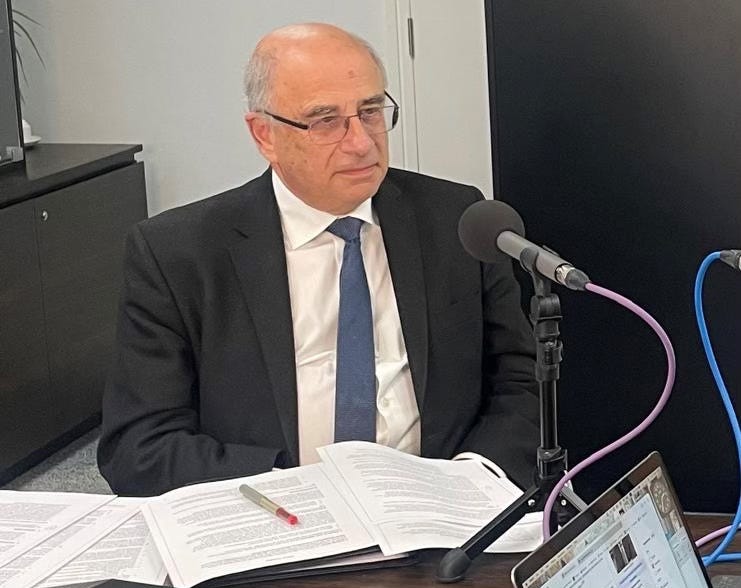The director general of MI5 told the independent commissioner who oversees his work that the security service had given false evidence in court shortly before the security service told the courts themselves.
As investigatory powers commissioner, Sir Brian Leveson oversees the use of covert powers by more than 600 public authorities, including the UK’s intelligence agencies, law enforcement agencies, police, local councils and prisons.
Last Wednesday, a High Court judge varied an injunction in a case involving a BBC investigation into an MI5 agent who is alleged to have terrorised his partner. Mr Justice Chamberlain said that MI5 evidence “was not just misleading, it was false. Whether or not it was deliberately false is the subject of an investigation.” That investigation was announced on the same day by the home secretary.
Leveson had agreed to talk to me a day later about how he and his team of retired judges decide whether to approve warrants signed by senior ministers and others that allow agencies including MI5 to interfere with the privacy of intelligence targets.
If the security service could lie to a court — as the BBC had alleged MI5 had done — then how could he be sure its officers were not lying to him?
“That’s a good question,” Leveson replied. The former senior appeal judge continued:
First of all, I have a very good relationship with the heads of each of the intelligence community and particularly in relation to MI5, who were concerned in this particular issue, with Sir Ken McCallum.
The relationship is based upon a comment that I made very early on and repeat all the time, which is: if you have a problem tell me about it. I will report on it, as appropriate, in the annual report but I will help you solve it. If you don’t tell me about it and I find out, then I am going to take a much more aggressive role in relation to its resolution.
I can’t obviously go into detail about this particular case. All I can say is that Sir Ken came himself to tell me what he was about to tell the court as soon as — he made it clear — he found out what the position was.
So how can I demonstrate they’re telling me the truth? Only by going in to check, which I can do. And if an error is reported, then I can send inspectors in to investigate that error.
And if that error has caused significant harm to an individual and it’s consistent with national security, I can tell the individual in rather opaque terms that they are entitled to apply to the Investigatory Powers Tribunal who have the power to award compensation in appropriate cases.
In a rare interview about his work, Leveson said the delay in getting his annual reports published was is one of his perennial problems. It was “not entirely fair” to say the government was stalling. But, in what appeared to be a sign of his frustration with the lengthy process of checking his reports for inadvertent security breaches, he disclosed the number of applications for warrants that he and his colleagues had rejected in 2023 and 2024 and explained what the figures told us about the effectiveness of the “double-lock” provisions. And we discussed some of his operational work.
Leveson also gave me a brief update on the report he is preparing for the justice secretary on reforming the criminal justice system of England and Wales. He is working in parallel with David Gauke, who calls for a reset of sentencing in a report published today. Legislation on both sets of recommendations is expected in the summer.
Although my weekly podcasts are normally reserved for paying subscribers to A Lawyer Writes, I have agreed with the Investigatory Powers Commissioner’s Office that there will be no paywall on this interview. You can listen to it in full by clicking the ► symbol above.














Share this post